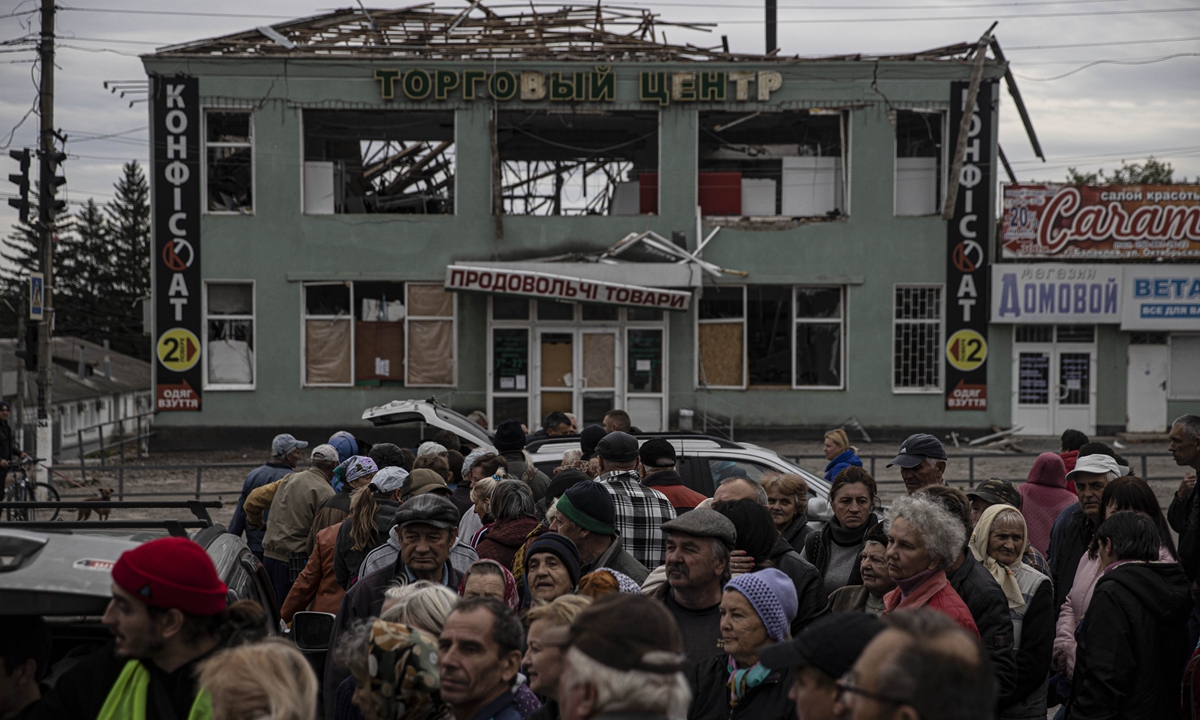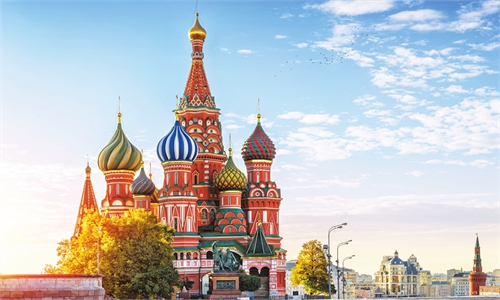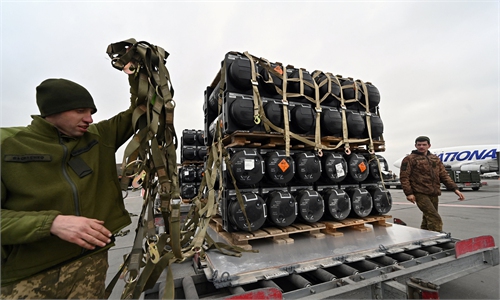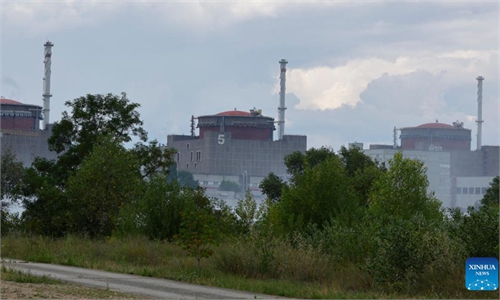Ukraine counterattack a turning point? Conflict likely to be prolonged with the support of the West: experts

Humanatarian aid is distributed to local people after Ukrainian army regained control over the town of Balakliya in the Kharkiv region on September 11, 2022. Photo: VCG
While some Western media outlets applaud Ukrainian forces for regaining control over some major cities in the northeastern region of Kharkiv and have described the territorial gains as a "turning point" in the Russia-Ukraine conflict that has lasted for half a year, some Chinese experts said it is still too early to predict a complete Ukrainian victory despite the successful tactical counterattack.
This counterattack does not mean that Russian troops will continue losing ground, especially when the Russian military aims to regroup in the Donetsk direction, some experts said. They pointed out that there is still a huge gap between Russia and Ukraine in terms of national and military strength and the current gains are still far from being able to pressure Moscow to surrender. With the support of the West, the Ukraine conflict is likely to be prolonged.
The Russian Defense Ministry confirmed the withdrawal of troops from multiple locations across Ukraine's Kharkiv region, RT reported on Saturday amid the Ukrainian offensive.
"In order to achieve the goals of the special military operation, a decision was made to regroup troops in the areas of Balakleya and Izyum in order to build up efforts in the Donetsk direction," the Russian military was quoted as saying on Saturday in the media report.
The announcement was made as some Western media such as CNN described the last week as a "stunning transformation of the battlefield in eastern Ukraine," as Ukrainian forces claimed they had recaptured more than 3,000 square kilometers of territory - most of the territory that Russian forces has had in their operations since April.
The Economist ran an article asking "Is Russia on the run?" as Ukraine's Kharkiv counter-offensive "has the Kremlin on the back foot." Ukraine's surprise counteroffensive, which began on September 6, continues to overwhelm Russian defenses in the country's northeastern region, the magazine said.
The Atlantic also ran a headline suggesting "It's time to prepare for a Ukrainian victory," saying that the biggest shock is not Ukraine's tactics but Russia's response, as the Russian troops are not fighting back.
"The Ukraine troops staged a successful counterattack as they grasped the lack of Russian troops on the Kharkiv front, but it's only meaningful at a tactical level rather than for the whole conflict," Cui Heng, an assistant research fellow from the Center for Russian Studies of East China Normal University, told the Global Times on Monday.
The Kharkiv front is close to the Russian border, and even if Ukrainian troops recaptured some lost territories there, they can no longer attack Russian soil. If the Ukrainian army attacks Russian land, it will push the Kremlin to mobilize conscripts fight, thus completely solving the shortage of contract soldiers, Cui said.
"It's too early to say the latest development is a turning point [for the Russia-Ukraine conflict]," he said.
The Russian military said troops stationed in the area have been "re-deployed" over the past three days into the territory of the "Donetsk People's Republic," and in order to prevent "damage to Russian troops," the military has been subjecting Ukrainian units in the area to "powerful" artillery, missile and aircraft attacks, the ministry said, according to the Russian media report.
"For Ukraine, its goal is pretty clear as it aims to recapture not only Kharkiv but also the Donbas region and Crimea, but those places are strategically meaningful for Russia," a Beijing-based expert on international affairs who preferred not to be named told the Global Times on Monday.
The expert believes that the completely contradictory strategic goals of the two countries will make this conflict last much longer.




